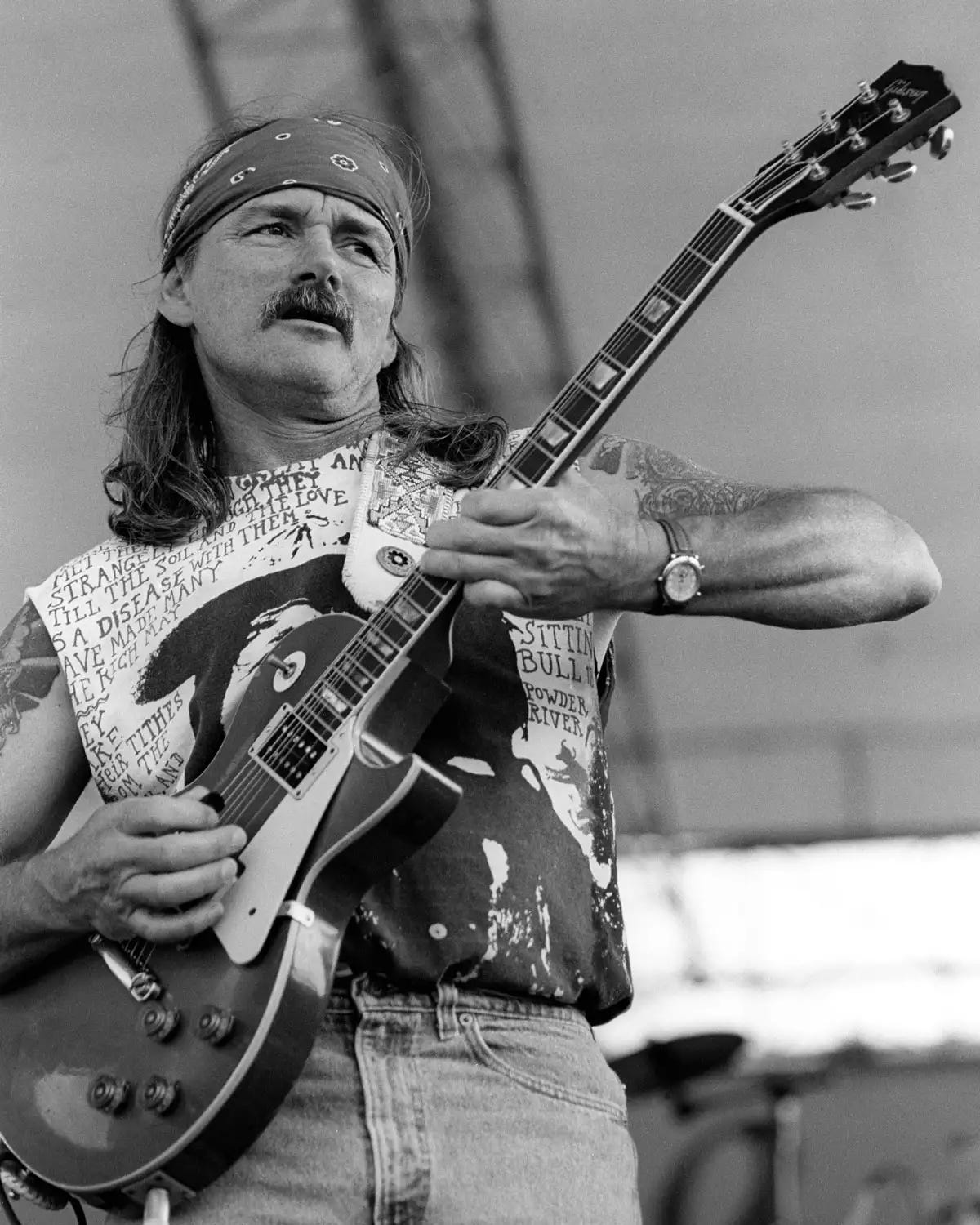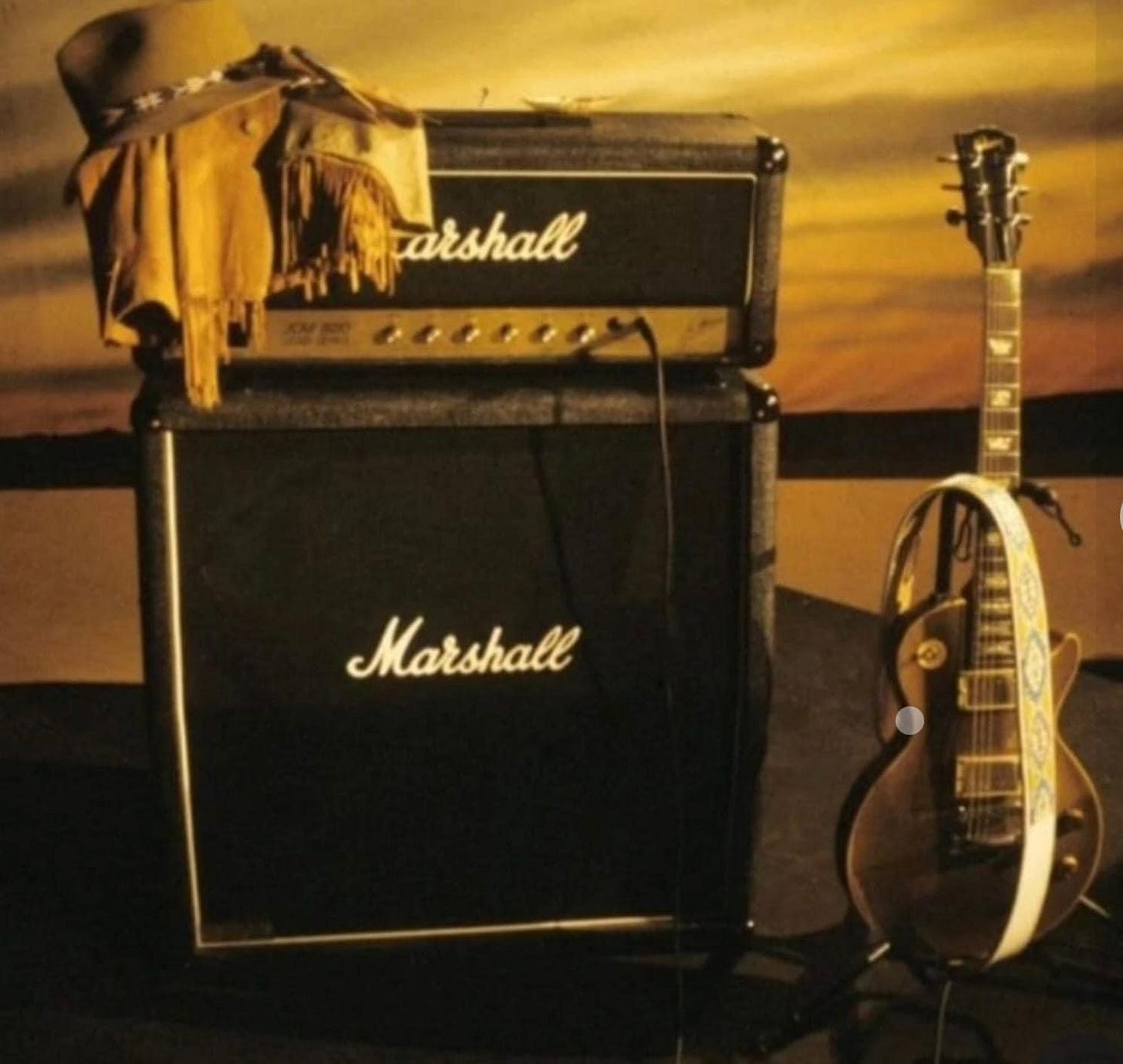New Book Announcement; R.I.P., Dickey Betts; Mark Knopfler's Latest
This week's newsletter: A deep dive into the swamp, a loss of one guitar legend and the return of another.
“I’m goin’ down to the swamp…”

That’s how Ronnie Van Zant kicked off Lynyrd Skynyrd’s “Swamp Music” on 1974’s Second Helping. 50 years later, I’m writing a book about Swamp Rock. Coincidence, maybe? Maybe not.
What is Swamp Rock, you ask? It’s quite simply several styles of American music mixed into one hefty pot of jambalaya: blues, soul, country, rock, and funk. It all comes out as sweaty guitar, deep bass, and a slinky backbeat, with a pinch of sinister organ around the edges. Yes, that’s Swamp Rock at its most basic, but there’s still so much more to it.
With Swamp Rock [working title], we’ll journey through the swamps of Florida, Louisiana, East Texas, and even North Carolina. We’ll also head west and visit with the musicians who dreamed of the bayous of the deep South and allowed those dreams to fuel their imagination.
We’ll dig into the country and soul of the 1960s and ‘70s and how it impacts the sounds we groove to even now. We’ll talk about Black and white artists working together despite the civil unrest throughout the South and beyond.
And we’ll dig into Swamp Pop, Swamp Rock’s older sibling, and the artists that defined it. Oh, there’ll be plenty to talk about. I can’t wait to share it with you.
In the meantime, let’s whet the appetite with the original Swamp Fox, Tony Joe White.
Stay tuned to this space for more…
R.I.P., Dickey Betts
The Allman Brothers were more than just a group of amazing musicians, they were the first to show me that jazz, blues, southern soul, country, and rock’n’roll could not only co-exist but could create a blend of deeply rooted - and deeply American - music; Allman Brothers music.
There wasn’t a time in my life that I don’t recall knowing who Dickey Betts was. My first exposure I’m pretty sure had to be “Jessica”. To my young ears, I always equated “Jessica” with Charlie Brown and the rest of the Peanuts gang, because Chuck Leavell’s joyful, dancing piano reminded me of Vince Guraldi’s lively runs over “Linus and Lucy”. It couldn’t help but make me smile, and it still does.
Then there was “Ramblin’ Man” and “Blue Sky”; both songs evoked endless highways and bright, sunny days. They were the perfect antidote to Gregg Allman’s tortured blues, pensive folk, and melancholy lyrics. For every “Melissa”, there was a “Jessica”. This was post-Duane, of course. Before the passing of Gregg’s older brother, Dickey acted as the “other” guitarist, the one who almost always soloed second during the jam, and the one who never sang on record until after Duane’s passing (although Duane plays on “Blue Sky”, the song was released posthumously on Eat A Peach). (Interestingly, Berry Oakley was the first one other than Gregg to have a lead vocal on an Allman Brothers Band album (on their version of “Hoochie Coochie Man” on Idlewild South.)
Dickey could soar, wrangle, and dig down deep just to soar even higher. I was lucky enough to witness his incredible guitar work up close many times, and goosebumps never failed to appear. If you’ve ever felt your head, soul, and other parts, buzz from awe and excitement at a rock show, then you know what I mean. Watching Dickie hit overdrive and do the impossible wasn’t just a once-a-show occurrence, either. It was almost every song.
Of course, Dickey was more than an incredible guitarist. He was a solid bandleader and one helluva great songwriter. There was the joy and celebration of “Jessica” and “Blue Sky”, yes, plus the ultimate road song in “Ramblin’ Man”, but he had so much in his arsenal. Most every Allman Brothers studio album from Idlewild South on included a Dickey Betts-written instrumental. And it all started with “In Memory of Elizabeth Reed”.
From “Reed” to the Grammy-nominated “Kind of Bird” off 1991’s Shades of Two Worlds, Dickey’s instrumentals were always exciting journeys to the center of the soul and mind. His songwriting revealed a complex character, not unlike most of us, who was as comfortable with deep exploration as he was singing a country rock barn-burner like “Crazy Love”.
While the Allmans as a unit mostly sat out the 1980s, Gregg and Dickey kept busy. Gregg formed a version of the Gregg Allman Band featuring brothers Dan and David Toler, releasing the pop/rock-leaning I’m No Angel and the tad more true-to-form Before the Bullets Fly. He also did a little acting. Meanwhile, Dickey took his guitar and pen to Nashville.
It seemed completely natural that Dickey would stretch his country chops. When he released his solo debut, Highway Call, in 1974, its lead-off track, “Long Time Gone” leaned hard into his Southern country-rock obsessions. He perfected this approach with his 1977 self-titled album with the newly-formed Great Southern, especially on the glorious beauty of “Bougainvillea”, co-written with Don Johnson.
The move to Nashville was inevitable, especially since Dickey’s rowdy friends, David Allan Coe and (especially) Hank Williams, Jr., were riding high with a steady wave of hits in the ‘80s. Dickey hit music city so hard that he ended up on TNN’s Nashville Now with Ralph Damn Emery.
He then guested on one of Bocephus’s best and most laid-back moments of the era, “Country State of Mind” (that’s Dickey saying “I know where Hank, Jr. is” after the last chorus).
That same year, he added a squallin’ solo to the title track of David Allan Coe’s “Son of the South”, which also featured a young Warren Haynes.
It was at that session where Betts noticed Haynes, and soon after asked the young guitarist to join him in his new eponymously-named band. Pattern Disruptive was released in ‘88.
The release of the Allman Brothers Band’s box set, Dreams, the following year led to Dickey reuniting with Gregg, Jaimoe, and Butch, bringing along from Betts’ band Haynes and keyboardist Johnny Neel, and picking up bassist Allen Woody (Woody, Haynes, and DBB’s drummer Matt Abts would later form Gov’t Mule) for the first new Allman Brothers music since 1981. The title track is one of Dickey’s most powerful and accessible moments on record. There he is in all his glory, like a good ol’ boy I could’ve known growing up in rural Granville County, NC. That voice right out of the country, the swamps, the fields - the south.
There’s much more to say, and plenty of folks have shared some wonderful memories and thoughts elsewhere. Probably the best I’ve read is this piece by Alan Paul, so I’ll just leave you with this last look at the ramblin’ man as he heads down Highway 41, answering the highway call to a blue sky of his own.
I’ll have more to say about the ABB’s 1994 album Where It All Begins for its upcoming 30th anniversary soon. In the meantime, R.I.P., ramblin’ man.
The Calm Consistency of Mark Knopfler
Mark Knopfler recently unveiled a once-in-a-lifetime guitar jam on his instrumental “Going Home (Theme from Local Hero)” in aid of Teenage Cancer Trust and Teen Cancer America. I’ve added the video below, which is extremely helpful in listing each artist’s contributions as they fly by. I won’t spoil it by listing any names, but chances are, if you can think of a guitarist, they’re on this track. (Props must be given to Guy Fletcher for mixing all this together. )
If this had been produced 25, 30, or 35 years ago, it would have been a major music news event. Still, as it is, it’s nice to have the guitar front and center again, even fleetingly, and for a cause as important as the UK’s Teenage Cancer Trust. It was also quite a way to lead up to Knopfler’s first new album in six years, and his 10th overall, One Deep River.
Speaking of Swamp Rock, One Deep River’s opening track, “Two Pairs of Hands,” leans hard into Knopfler’s JJ Cale/Tony Joe White-inspired approach. How timely!
One Deep River is as comforting and reliable as a warm blanket to ease the chill, as a cold glass of lemonade on a hot afternoon. Every track, every note, sounds inevitable. Some may see this as a liability. It’s not. It’s reassurance in a time of uncertainty and division. As “Smart Money” sways, “Scavenger’s Yard” crawls and struts through the alleyway. “Watch Me Gone” glides along as that voice, filtered through decades of gravitas, details the fading memory of the end of a relationship. Ending with the title track, one of Knopfler’s best and most poignant songs in years, One Deep River recalls the spirit of Dylan’s Time Out of Mind, but with optimism and acceptance.
That’s it for now. If you know someone who might like The Mixtape, be sure to pass it along to them, and if you haven’t already, feel free to subscribe. Thanks for reading!





A lot of great stuff here. Betts was a great guy and I had the pleasure of riding on the tour bus with the band to show the driver how to get to the venue when they played Greenville, NC back in the late 80's. I was 16 years old and had been dispatched to the Hilton to retrieve the group and get them to the show. The band had come in from Chattanooga and argued all the way. Tensions were high on that bus and, outside of the tour manager, Dickey was the only one that spoke to me. The rest of the band would barely look at each other.
I keep hearing Knopfler’s latest single on Outlaw Country. I guess country - in any form - really is the new rock.....
Tensions were high in the late ‘80s after they had just gotten back together? Man. Hate to hear that. Still, what a great memory in spite of all that!